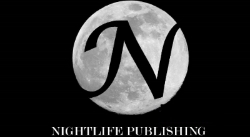Humans are predisposed to creating "Us vs. Them" dynamics. We’re getting a heavy dose of that in our current political climate, but we’ve always found ways to divide ourselves according to race, religion, nationality, ideology and dozens of other factors. None of these contrasts matter in the end because we all share a fundamental humanity, except when it comes to writing fiction. That is completely different story (insert sarcasm here).
The Two Travelers
In writing six novels, I’ve found two great paradigms in the craft of fiction writing. Each has its strengths and weaknesses that all aspiring writers should consider.
On one side we have the “pantser” who writes "from the seat of their pants". They begin with an idea and a blank screen. Then they start writing. Their idea and their inspiration lead the way and to a large extent, the writer follows the creative inspiration until the end of the narrative. There are several well-known proponents of this method. Stephen King and Tom Clancy have published bestsellers in this style and quite a few independent writers I know also support it.
On the other hand, the plotter starts with an idea, but then builds some kind of road map as a guide before writing the manuscript. Some writers call it a plot. Others call it an outline or a script. Robert McKee explored this method in depth in his book Story and I have found that motion picture and graphic novel writers are much more comfortable with the plot method.
In short, a panster is like an archaeologist who "finds" their story as they write it, never completely sure of what they will pull from their subconscious until it’s done. They are like the traveler who takes a trip with the expressed goal of getting "lost" and reveling in the adventure of what they discover.
By contrast, a plotter is closer to an architect who "builds" their story out of models and plans, unwilling to begin construction until they know what the structure will look like. They are the traveler who takes a trip with a map, a GPS, a guidebook and an itinerary of some kind.
I'm not trying to advocate one method over another, because every writer has to find the method and the practice that works with their temperament and lifestyle. I can explain why I plot and how it helps me, in the hopes that this can help you understand your own method better.
The Method to My Madness
All my professional writing has included some kind of plotting. Creating contracts as a lawyer and understanding the development of comics or the production of films all required outlines of various sorts. Now that I publish independently, plotting enhances my structure and my timing in several different ways:
When I write from a plot I can work from the inside out. I understand how each character relates to the others and how the narrative will flow. I can build each beat within a chapter, each chapter within an act and each act within a story. A script might take three months to a year to write, but when I'm finally ready to write the book the writing goes very fast.
In my wild youth, I tried to write a novel by the seat of my pants. It took me ten years to finish and it was such a hot mess at the end that I tossed the entire thing. By contrast, the plot for my upcoming novel Dark Honey will be done in less than a year because I work from a plot.
My plots save me time in the long run because I avoid writing myself into a place I can't get out of. If the story doesn't work on the developmental levels of plot or pitch, it can be reworked or abandoned without much time lost. I'd hate to start something and then have to revamp the whole idea after a year or two of writing. It would be worse to write most or all of a story before figuring out that it needs to be chucked. I've got a lot of plots floating around that I can play with at my leisure. When one ripens, I know it’s a project I can actually finish.
The Map Is Not the Journey
Some might think that writing a plot before writing a novel is less organic and more formulaic. That might be true for some writers, but only if they are too rigid with the plot. As I write, it is normal for my characters and situations to deviate from the original script. I don't see that as a problem. It's a natural part of the journey. It’s like going on a trip; just because you have a map doesn't mean you can't take a detour. The plot is still helpful when this happens, because it will show me where I can regain the narrative thread and where previous material needs to be changed to conform to the logic of this new direction.
Creating a plot is writing by the seat of your pants in an efficient, low risk way. I can play with ideas and see where they take me without trying to manage setting, dialogue, grammar, description and sentence flow at the same time. It's like taking a trip and getting lost in a plane rather than on foot.
Being a plotter instead of a panster is not a superior writing method or a guarantee for success. No matter how you write the first draft, a manuscript still needs multiple rounds of editing and polish. But creating a plot can be helpful if it suits you. I don't think I would write any other way.
So how do you write your novels? Please leave a comment and let me know.
Have fun.
Gamal















